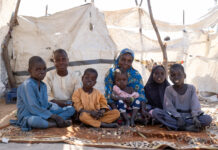The World Health Organisation (WHO) says there is need for“collective commitment” to get vaccinations for health workers and others who are at high risk of catching COVID-19 within the next 100 days.
WHO’s Director-General, Dr Tedros Ghebreyesus, made this known during COVID-19 news conference at WHO headquarters in Geneva.
In his speech posted on the UN health agency website on Tuesday, Ghebreyesus said a year ago, the first death from COVID-19 was reported and WHO issued its first tranche of technical guidance.
“The comprehensive package includes guidance on surveillance, lab testing, infection prevention and control, a readiness checklist, and risk communication and community engagement.
“A year on, there have been almost two million deaths from the COVID-19 virus.
“We are hopeful about the safe and effective vaccines that are being rolled out, we want to see this sped up and vaccines allocated equitably in the coming weeks.
“Next week at the WHO Executive Board, I will be encouraging all countries to fulfill their pledges to COVAX.
“I call for a collective commitment so that within the next 100 days, vaccination for health workers and those at high-risk in all countries are underway,” he said.
The director-general urged governments, manufacturers, civil society, religious and community leaders to come together to create the greatest mass mobilisation in history for equitable vaccination.
“WHO continues to ask vaccine manufacturers from around the world to move swiftly to provide the necessary data that will allow us to consider them for emergency use listings,” he said.
In addition, the director general said he was pleased that a WHO team was currently in China.
He said the team was currently working with producers of the Sinovac and Sinopharm vaccines to assess compliance with international quality manufacturing practices ahead of potential emergency use listing by WHO.
“To clarify this is separate from the WHO origins mission.
“We also look forward to Serum Institute of Indiasubmitting full data sets for rapid assessment so WHO can determine whether we can recommend their AstraZeneca vaccine for international use.
“These are just a couple examples of work under way by WHO, GAVI, CEPI and other partners aimed at safe, rapid, equitable and wise allocation of vaccines.
“As I have said before and will say again, saving lives, livelihoods and economies depends on a global agreement to avoid vaccine nationalism,” he said.
Ghebreyesus said yet another new variant or mutation of the virus, had emerged in Japan over the weekend, while transmissibility “appears to be increasing.”
Although the increased infectiousness coulddrive more cases, hospitalisations and deaths, “at present, the variants do not seem to show increased severity of disease,”he added, offering some reassurance.
According to him, with new treatments coming down the pipeline, we are hopeful that more lives of those with serious cases of COVID-19 can be saved. But we need to follow the public health basics, now more than ever.
Most critical, said the director-general, wasto effectively sequence the DNA and composition of the virus, “so we know how it’s changing and how to respond.
“There may be a need to ‘tweak’ both diagnostics and vaccines in order to keep pace with the mutations.
“We call on all countries to increase the sequencing of the virus, to supplement on-going surveillance, monitoring and test efforts,” he said. (NAN)




